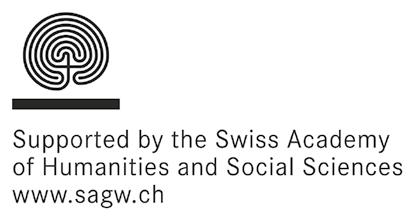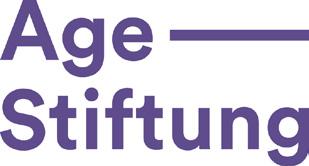We thank our sponsors for making this event possible!
Dear participants to the Congress of the Swiss Sociological Association
With a focus on ‚Vulnerable Societies: Risks and Responses‘, this sociological meeting is addressing central issues of our times, characterized by successive crises and major uncertainties as regards the future. The anticipation of risks and efforts to develop responses to them, at the individual and collective levels, run across all domains of social life. Hence, the SSA research committees can offer important insights on how societies and social groups appraise and react to risk and vulnerability, in their respective fields of expertise including education, health, migration or gender to name just a few. In addition, sociological analyses of risk and vulnerability have major applied implications and should inform policies. Therefore, the cooperation between researchers across academic settings and Universities of Applied sciences are crucial to develop analyses and propositions to address current and upcoming societal challenges.
As SSA president, I want to thank the University of Applied Sciences and Arts Northwestern Switzerland, and especially the School of Social Work, for endorsing the organization of this SSA congress. After years of activities affected by the COVID-19 pandemic, we should particularly appreciate the opportunity to meet again in regular circumstances. Congresses provide indeed unique settings to discuss theoretical propositions, to share empirical findings and to maintain the discipline‘s dynamism. I wish you a lively and stimulating congress.
Claudine Burton-Jeangros, president of
the Swiss Sociological Association, April 2024
Welcome!
Dear participants, colleagues, and friends!
Welcome to the 2024 Congress of the Swiss Sociological Association hosted by the University of Applied Sciences and Arts Northwestern Switzerland and organized by the School of Social Work. On behalf of the Director of the School of Social Work FHNW, it is an honor to be the host of this congress for the first time.
The aim of the congress is to highlight a concept that places the inherent vulnerability of individuals and collectives at its epistemological center. The theoretical and empirical significance of the concept of vulnerability has gained interdisciplinary importance in recent years and has inspired people beyond academic boundaries to rethink and reshape interpersonal and intergroup relationships.
This year‘s theme ‚Vulnerable Societies: Risks and Responses‘ is deeply meaningful to us at the School of Social Work FHNW. As social workers and academics, we are committed to the issue of vulnerability. Addressing the needs and aspirations of vulnerable groups in our society is at the core of our work. Social work and sociology are closely related, with social work often drawing on sociological theories and methods to understand and address social problems. Sociological theories enable social workers to critically analyze the social and cultural factors that influence individuals and communities. Social work contributes to a deeper understanding of the relationship between society and the individual, defined as the analysis of social problems and their effects on individuals, and the description of how organizations deal with these problems. Overall, the relationship between social
work and sociology is one of mutual influence and collaboration, with both disciplines contributing to a deeper understanding of social problems and their solutions.
Without the combined efforts of many dedicated individuals and teams, a congress of this magnitude would not be possible. I would like to sincerely thank the congress administration, marketing and website managers, room management, technical support and especially our dedicated colleagues of the scientific committee responsible for the congress topic and program.
We look forward to stimulating and insightful discussions during this congress, exploring issues of risk and responding to vulnerability. It is an opportunity for us to share the results of our research, exchange valuable insights, and foster a dialogue that will shape the course of our mission - to strengthen societal resilience and empower vulnerable groups.
Sibylle Nideröst, Deputy Director, School of Social Work FHNW
Program Overview
Monday 9 September 2024
10:30 Social City Tour in Basel
12.30 Check in Atrium / Ground floor
14.00 Congress opening & SSA-Young Researcher Prize award ceremony
Prof. Dr. Claudine Burton-Jeangros (SSA president)
Prof. Dr. Sibylle Nideröst (Deputy Director, School for Social Work FHNW)
Prof. Dr. Eva Nadai (Chair of the Organizing Committee)
Room EG.W.01
14.45 Keynote 1: Zur Vulnerabilität sozialer Systeme: Der Fall der politischen Demokratie
Prof. Dr. Rudolf Stichweh
Room EG.W.01
15.30 Break
16.00 Keynote 2: The everyday politics of vulnerability (online)
Prof. Dr. Dorothea Hilhorst
Room EG.W.01
17.00 Semi Plenaries I:
Schools and Universities as Resilient Organizations: Vulnerability in Times of Multiple Crises
Room 02.O.03
Economic vulnerability and migration
Room 02.S.21
Multiple Vulnerabilitäten in städtischen Milieus: theoretische Reflexionen & empirische Befunde
Room 02.W.03
Analyses of Risk, Uncertainty and Vulnerability in Contemporary Society: Health, Cyberspace and Truth
Room 02.N.21
18.30 Welcome reception with welcome address of Kaspar Sutter, member of the cantonal government of Basel-Stadt Atrium / Ground floor
Tuesday 10 September 2024
09.00 Workshop Session I
Details and room numbers on page 8
11.00 Break
11.30 Keynote 3: The ambidextrous state: vulnerability, victimhood and mobility
Prof. Dr. Bridget Anderson
Room EG.W.01
12.15 Lunch
General Assembly of the SSA (Room 02.O.03)
13.45 Semi Plenaries II:
Poverty, vulnerability, and the social conditions of agency
Room 02.N.21
Wiedererwachendes Interesse am Subjekt? Methodologische und methodische Implikationen der Berücksichtigung von Vulnerabilität
Room 02.O.03
Differences and vulnerabilities in thinking and planning the city
Room 02.O.09
Krise(n) oder Persistenz in pädagogischen und sozialarbeiterischen Bildungsfeldern? Differenzkritische resp. migrationsgesellschaftliche Perspektiven auf Bildungsungleichheit
Room 02.S.21
Vulnerabilisierungen – Familien diesseits und jenseits hegemonialer Normen und Zuschreibungen
Room 02.W.03
Constructing mental illness, negotiating vulnerabilities: Institutional responses of the law enforcement and criminal justice system to emotional and mental disturbance
Room 02.W.09
15.15 Break
15.45 Workshop Session II
Details and room numbers on page 8
18.00 Social City Tour in Basel
19.30 Dinner at Werk 8, Basel (Location: Google Maps)
Wednesday 11 September 2024
09.00 Workshop Session III
Details and room numbers on page 9
11.00 Break
11.30 Keynote 4: Accounting for the ambivalence of the politics of vulnerability: a perspective oriented towards capability to aspire and capability for voice
Prof. Dr. Jean-Michel Bonvin
Room EG.W.01
12.15 Lunch
FORS Workshop: Discover the FORS Data Archive Services (Room 01.W.20)
Business meetings of the SSA Research Committees (Rooms on page 11)
13.15 Semi Plenaries III:
Des apprenti-e-s en situation de vulnérabilité ? Réflexions à partir de leur statut et des enjeux de santé au travail
Room 02.N.21
Digital Payments: Neue Vulnerabilitäten?
Room 02.O.03
Perspektiven von vulnerablen Gruppen auf vulnerable Kontexte: Deutung von Krisen aus Sicht von Kindern
Room 02.S.21
Unsichtbare Vulnerabilitäten als Herausforderung in der Arbeitswelt
Room 02.W.09
14.45 Break
15.00 Workshop Session IV
Workshop Session I
Tuesday, 9.00-11.00
Coping with Vulnerabilities in the Context of Forced Migration I
Room 02.N.21
The Role of International Non-Governmental Organizations (INGOs) in Counteracting and Reducing Vulnerabilities to Foster Social Change in the Global South Room 02.S.21
Pflegerische Versorgung und sich wechselseitig verstärkende Vulnerabilitäten
Room 02.W.03
Latenz und Aktion bei vulnerabler Agency. Erkundung eines Begriffsinventars zur Analyse solidarisierender Praxen existenzieller Krisenbearbeitung
Room 02.W.09
Ein verletzliches Wir. Zur Konstitution von Kollektivität in der Spannung zwischen Vulnerabilität und politischer Praxis I Room 12.O.01
Vulnerability in Crisis? – Construction, Negotiation and Governance of Vulnerability during Crisis
Room 12.O.17
Verletzbarkeit als Bedingung für Autonomisierungsprozesse in sozialen, pädagogischen und Gesundheitsberufen
Room 12.O.25
Vulnerabilität und Künstliche Intelligenz / Vulnerability and Artificial Intelligence
Room 12.S.01
New vulnerabilities of market exclusion and inclusion
Room 12.S.09
“To trust, or not to trust, that is the question”. Vulnerability to information as a risk of modern society
Room 12.S.17
Investigating Resilience and Vulnerability in Schools and Universities in Times of Crises and Transformation
Room 12.S.25
Shared Vulnerability: A Key Concept for Critical Social Sciences?
Room 12.W.01
Doing research about and with people that lack decision-making capacity
Room 12.W.09
Vulnerabilität im Kontext sozialer Probleme
Room 12.W.17
Immigrant integration and vulnerability Room 12.W.25
Workshop Session II Tuesday, 15.45-17.45
Coping with Vulnerabilities in the Context of Forced Migration II Room 02.N.21
L’inspection du travail face aux différentes formes de vulnérabilité des travailleurs-euses// Labour inspection and worker vulnerability I Room 02.O.03
Physical activity and sports and vulnerabilities: taking or reducing risks through sports activities
Room 02.S.21
Caring Societies – Critical infrastructures in times of heightened vulnerability Room 12.O.01
Migration, age, vulnerability and wellbeing: which relations?
Room: 02.W.09
Ein verletzliches Wir. Zur Konstitution von Kollektivität in der Spannung zwischen Vulnerabilität und politischer Praxis II Room 12.O.09
Morality and Technological Innovation Room 12.O.17
Vulnerability in Arts and Culture: Risks and Responses I Room 12.O.25
Analysing Gender: Exploring Innovative Measures in Quantitative Surveys / Analyser le genre: exploration d’indicateurs innovants dans les enquêtes quantitatives
Room 12.S.01
Decolonising Social Work while Dealing with Structural Conditions of Vulnerability Room 12.S.09
Sozialhilfevollzug in der Schweiz Room 12.S.17
Social vulnerabilities and resources of destitute European migrants in Switzerland and the response of the Swiss welfare state Room 12.S.25
Forschungsethik in der Rekonstruktiven Sozialforschung: Herausforderungen im Kontext von Forschung mit vulnerablen Gruppen Room 12.W.01
Crises, conflicts, catastrophes – on the relationship between “self-vulnerabilization” and collective capacities for action from a convention theory perspective Room 12.W.09
Accessing healthcare institutions: what is at stake during negotiations to conduct fieldwork Room 12.W.17
Vulnerabilität im Alter: Zwischen Anerkennung und Ageism
Room 12.W.25
Workshop Session III
Wednesday, 9.00-11.00
L’inspection du travail face aux différentes formes de vulnérabilité des travailleurs-euses// Labour inspection and worker vulnerability II Room 02.N.21
Vulnerable groups in education in times of crisis. Impact of COVID-19 on academic achievement, educational outcomes and labour market entry
Room 02.O.03
Qualifier les violences, attribuer les vulnérabilités : normes, dispositifs et controverses I Room 02.S.21
MOSAiCH and attitudinal surveys in Switzerland: a tool for measuring crisis, uncertainty and vulnerability? I
Room 02.W.03
Visualisierung von Vulnerabilität – Bilder und Imaginationen individueller und sozialer Verwundbarkeit I Room 02.W.09
Bezeugte Vulnerabilität. Wahrnehmung und (Nicht-)Anerkennung von Verwundbarkeit im Kontext von Fürsorge, Psychiatrie, Schule und Migration
Room 12.O.01
Vulnerability in Arts and Culture: Risks and Responses II Room 12.O.09
All equal in health care? Conditions, manifestations, and consequences of different treatment
Room 12.O.17
Recent advances from health and medical sociology I Room 12.O.25
Thinking with vulnerabilities in STS and beyond I
Room 12.S.01
What about the vulnerability of researchers? I
Room 12.S.09
Vulnerabilitäten und Vulnerabilitätsdiskurse qualitativ beforschen / Qualitative research on vulnerabilities and vulnerability discourses / Recherche qualitative sur les vulnérabilités et les discours sur la vulnérabilité
Room 12.S.17
The Pluralization of Social Knowledge Production and the Paradox of Vulnerability
Room 12.S.25
(De)gendering vulnerabilties I: Work and Professionals
Room 12.W.01
Vulnerabilisation of migrant workers during crises
Room 12.W.09
Fragilität und Alter im Spannungsfeld von Selbst- und Fremdsorge, Subsidiarität und staatlichem Eingriff
Room 12.W.17
Workshop Session IV
Wednesday, 15.00-17.00
Qualifier les violences, attribuer les vulnérabilités : normes, dispositifs et controverses II
Room 02.S.21
MOSAiCH and attitudinal surveys in Switzerland: a tool for measuring crisis, uncertainty and vulnerability? II
Room 02.W.03
Visualisierung von Vulnerabilität – Bilder und Imaginationen individueller und sozialer Verwundbarkeit II
Room 02.W.09
Vulnerability in Arts and Culture: Risks and Responses III
Room 12.O.01
Contentious Non-Compliance als Krisenreaktion vulnerabler Gesellschaften der Spätmoderne
Room 12.O.09
Vereinsamung als Vulnerabilitätsrisiko älterer Menschen – Isolation and loneliness as a vulnerability risk for older people
Room 12.O.17
Recent advances from health and medical sociology II
Room 12.O.25
Thinking with vulnerabilities in STS and beyond II
Room 12.S.01
What about the vulnerability of researchers? II
Room 12.S.09
Urban hospitality: how do cities accommodate vulnerable migrants?
Room 12.S.17
La vulnérabilité du patient à l’heure du numérique (Patient Vulnerability in the Digital Age)
Room 12.S.25
(De)gendering vulnerabilties II: Politics and Policies
Room 12.W.01
Vulnerabilität und Gewalt
Room 12.W.09
Doppelte Kontingenz? Vulnerabilität und Adoleszenz im Zeitalter multipler Krisen
Room 12.W.17
Lunch Time Events
SSA General Assembly
Tuesday, 12.15-13.15
Room 02.O.03
Business meetings of the SSA Research Committees
Wednesday, 12.15-13.15
Sociology of Health and Medicine
Room 02.N.21
Gender Studies
Room 02.O.03
Sociology of Arts and Culture
Room 02.O.09
Economic Sociology
Room 02.S.21
Migration & Minorities
Room 02.W.03
Urban Sociology Room 02.W.09
Life Course Room 12.O.01
Discover the FORS Data Archive Services: A Remedy for Your Data Nightmares
Wednesday, 12.15-13.15, Room 01.W.20
Have you ever faced challenges in retrieving your data from a past research project? Are you encountering difficulties in comprehending the data, dealing with an inaccessible project website, or missing metadata? Are you in search of a secure repository for your sensitive data? Do you wish to make your data, syntax or replication material available? Are you interested in connecting your data with research conducted by other social scientists?
Join us for an engaging session where you can interact with FORS experts and delve into reliable solutions regarding data preservation, sharing, and access within the social sciences. In this presentation, we will first provide an overview of the data archive services offered by FORS, the Swiss Centre of Expertise in the Social Sciences. FORS is a national research infrastructure dedicated to providing data and research information as well as services to social science researchers and academic institutions across Switzerland. Our services are
designed to ensure the secure preservation and accessibility of valuable research data and replication materials for the scientific community. After introducing our services, we will present to you SWISSUbase, the platform the FORS data archive uses, enabling researchers to share their quantitative or qualitative data in adherence to the FAIR principles—ensuring data is Findable, Accessible, Interoperable, and Reusable. This platform is not only reliable and sustainable but also has the CoreTrustSeal certification, affirming its integrity and longevity. In the final part, the session participants can ask questions related to their own research project and data. Our expert team is ready to discuss your unique challenges, offering consultations in English, French, or German. Don‘t miss this opportunity to explore the services FORS offers, including a closer look at SWISSUbase, the platform facilitating these services.
Keynote Speakers
Rudolf Stichweh ist Seniorprofessor für Soziologie an der Universität Bonn und ständiger Gastprofessor an der Kultur- und Sozialwissenschaftlichen Fakultät der Universität Luzern. Er leitet die Abteilung Demokratieforschung des Forum Internationale Wissenschaft der Universität Bonn und ist ein Principal Investigator des „Bonn Center for Dependency and Slavery Studies“. Außerdem ist er als Forscher Mitglied der Lise Meitner Research Group „China in the Global System of Science“ des Max-Planck-Institut für Wissenschaftsgeschichte, Berlin. Er gehört der Nordrhein Westfälischen Akademie der Wissenschaften und der Künste, Düsseldorf, und der Nationalakademie Leopoldina, Halle, an.
Arbeitsgebiete: Theorie der Weltgesellschaft und Soziologie des Fremden, Soziologie und Geschichte der Wissenschaft und der Universitäten, Demokratie- und Autoritarismusforschung.
Buchveröffentlichungen: Democratic and Authoritarian Political Systems in 21st Century World Society 2021, Inklusion und Exklusion: Studien zur Gesellschaftstheorie 2016, Wissenschaft, Universität, Professionen 2013, Der Fremde: Studien zu Soziologie und Sozialgeschichte 2010.
Bridget Anderson is the Director of Migration Mobilities Bristol and Professor of Migration, Mobilities and Citizenship. She takes as her starting point that the ‚migrant‘ and the ‚citizen‘ and the differences between them are constructed in law and in social and political practice. Research also plays an important role in this, raising important ethical, epistemological and political questions. She is interested in the relation between migration, race, and nation, historically and in the contemporary world. Her work explores the relations between migration, temporalities and future making claims, with a particular focus on precarity, labour market flexibilities and citizenship rights.
Prof. Dr. Bridget Anderson
Prof. Dr. Rudolf Stichweh

Dorothea Hilhorst is a professor of humanitarian studies at the International Institute for Social Studies (ISS) of Erasmus University in The Hague. She is also the president of the International Humanitarian Studies Association, IHSA. Thea defines humanitarian studies as “the study of societies and vulnerable communities experiencing humanitarian crisis originating from disaster, conflict, refugee situations, and/ or political collapse. It studies the causes and impact of crisis; how people, communities and authorities respond to them, including efforts for prevention and preparedness; how humanitarian action and other external interventions are organized and affect the recovery from crises; and the institutional changes that crises and crisis response engender”. Her focus is on aid-society relations: studying how aid is embedded in the context, impacts on governments and society, and is shaped by the manifold actions of actors in and around programmes for protection, service delivery and capacity development. She has a special interest in the intersections of humanitarianism with development, peacebuilding and gender-relations. Her research programmes have taken place in settings affected by disaster, conflict and fragility, including Afghanistan, Angola, Burundi, the Democratic Republic of Congo, Ethiopia, the Philippines, Rwanda, South Sudan, and Sri Lanka. One of her recent research programme concerns cases where ‘conflict meets disaster’, that studies disaster governance in high-conflict, low-conflict and post-conflict societies. She currently implements an ERC advanced grant programme on humanitarian governance. In 2022, she was awarded the Spinoza Price, the highest scientific distinction in the Netherlands.

Jean-Michel Bonvin is Professor of sociology and socioeconomics at the University of Geneva. His areas of expertise include the welfare state and social policy, labour market policies, organizational innovation in the public and the third sectors, the sociology of work and businesses, and theories of justice, notably the capability approach. He has been involved into various EU and Swiss-funded research projects such as “Capright: Resources, Rights and Capabilities: In Search of Social Foundations for Europe”, “Re-InVEST: Rebuilding an Inclusive, Value-based Europe of Solidarity and Trust through Social Investments” or the NCCR LIVES “Surmonter la vulnérabilité: perspectives du parcours de vie”. He is presently participating into the project ”Involve: For trustful, participatory and inclusive public services”. Jean-Michel Bonvin is the author of numerous books and articles in leading peer-review journals such European Societies, Social Policy & Society, Critical Sociology, Policy & Politics, etc. He is a co-editor of the “Dictionnaire de politique sociale suisse” (2020).
Prof. Dr. Dorothea Hilhorst
Prof. Dr. Jean-Michel Bonvin
















